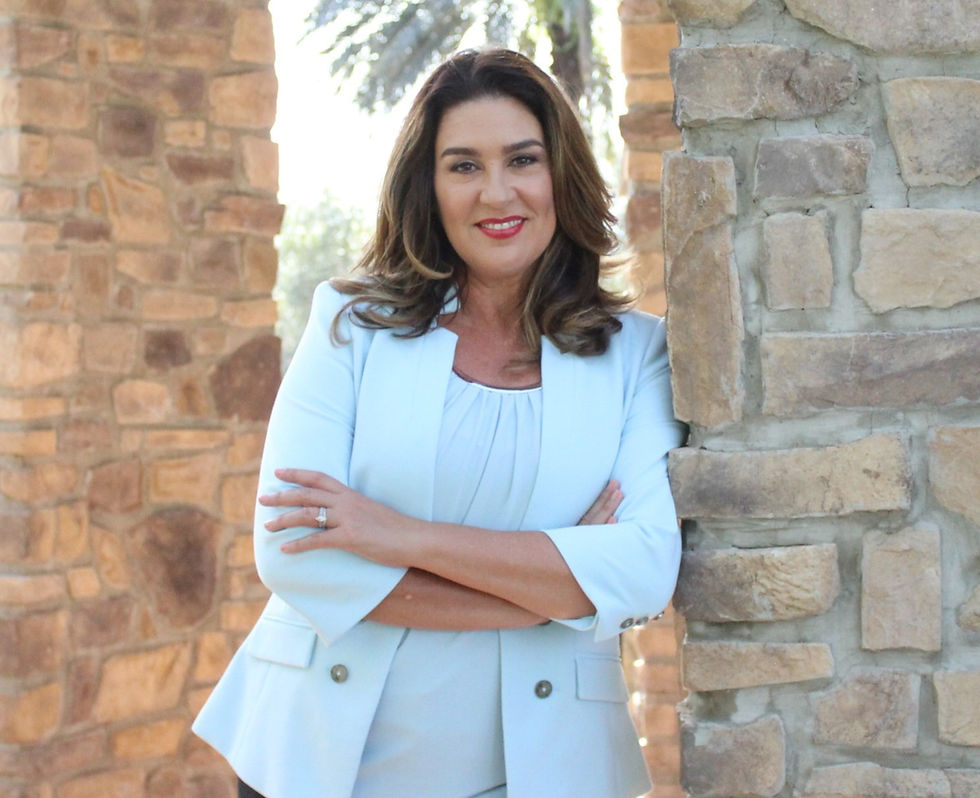Who's in control? Me or You?
- Dr. Cristina DiPietropolo

- Jun 2, 2021
- 4 min read
The concept of locus of control, introduced by Julian B. Rotter in 1954,[1] refers to an individual's expectations regarding control over what happens in his/her life. Control can be perceived as internal or external. Individuals who believe they have control over their destiny have an internal locus of control (Rotter, 1966) [2], or the contrasting view that individuals who believe that forces beyond their control directly impact them have an external locus of control (Yemen & Clawson, 2003) [3].

For example, students with an internal locus of control who do not do well on an exam may attribute their poor performance to a lack of studying and not being adequately prepared. In contrast, students with an external locus of control may attribute their poor performance on an exam due to not having a good teacher who properly conveyed information to their students. But how is this relevant to business, you might ask? Is locus of control relevant when you don't receive the promotion or get hired for that job you wanted?
The concept of locus of control can be expressed through a continuum and recognizing the tendency towards internal or external locus of control can help people choose strategies for managing their careers. Research shows that people with an internal locus of control tend to have better performance, are more optimistic, demonstrate resilience, and are more socially and politically active. They consider themselves in control of their lives and success, demanding more of themselves to achieve their goals. These individuals also believe their actions have consequences and operate better in situations with a lower level of structuring. In addition, they demonstrate higher accommodation levels about the acquisition of knowledge and implementing the necessary changes to achieve their goals.
In contrast, individuals with an external locus of control tend to give up more quickly in the face of challenges. They believe that outcomes cannot be controlled, and results reflect external factors (i.e., circumstances, luck, fate, or other forces that control their destiny). These individuals are more easily influenced by the opinions of third parties, are more pessimistic, blame others, and are affected by criticism and praise. They also tend to experience higher anxiety levels than those with an internal locus of control and work better in high structured tasks and processes.
Understanding how locus of control impacts your life is important. It's also vital to recognize that locus of control is a continuum that changes over time. For example, in my 20's and 30's I demonstrated an external locus of control. However, in my 40's and 50's that changed to an internal locus of control. How?
Tips for changing from External to Internal Locus of Control
Be mindful of your language - I stopped saying "there's nothing I can do" or "it is what it is, and I have no choice." Now I say, "It'll all work out, I don't know how, but it will," and then I view the situation from a different perspective and adjust my plans.
Take risks - I've always been risk-averse, but in my late 40's I decided it was time to step out of my comfort zone and take big risks in business and embrace uncertainty. So now, I view uncertainty as a challenge and not a threat.
Fail with style - I don't like to fail, but I know that it's inevitable. Unfortunately, when I do, it's usually epic. So, I've adopted the saying "Go big, or go home," and when I fail, I view it as part of the path of success, and I don't beat myself up over it as much as I did in the past.
Own it - I take responsibility for my choices, good or bad, and I strive to be transparent and authentic in everything I do. I have no problem telling people what I've done well and the things that I've done that have negatively impacted me in my personal or professional life. I'm honest with people – what you see is what you get.
From a leadership perspective, gaining a better understanding of an employee's locus of control creates the possibility of implementing training and development initiatives. Paul Spector's Locus of Control Assessment, designed to assess control beliefs in the workplace, is a tool an organization can utilize to identify employees' locus of control and implement training to guide them towards an internal locus of control mindset. While this measurement instrument is copyrighted by the author, it would be well worth the investment for your organization to use for developmental purposes.
So, who's in control of your future? You, or external forces?

Dr. Cristina Rosario DiPietropolo is the Founder and Chief Executive Officer at Leader Essentials Group, with extensive experience across multiple industries and highly skilled in the areas of strategic planning, organizational behavior, human resource management, change management, and leadership. Over ten years of teaching experience as a university professor of management, with a special focus on leadership in entrepreneurship, organizational behavior, and international management.
_________________________________________________________________________
[1] Rotter, J. B. (1954). Social learning and clinical psychology. Englewood Cliffs, N.J.: Prentice-Hall.
[2] Rotter, J. B. (1966). Generalized expectancies for internal versus external control of reinforcement. Psychological Monographs: General and applied, 80(1), 1.
[3] Clawson, J. G., & Yemen, G. (2003). The locus of control. Charlottesville: University of Virginia Darden School Foundation.
.png)



Comments